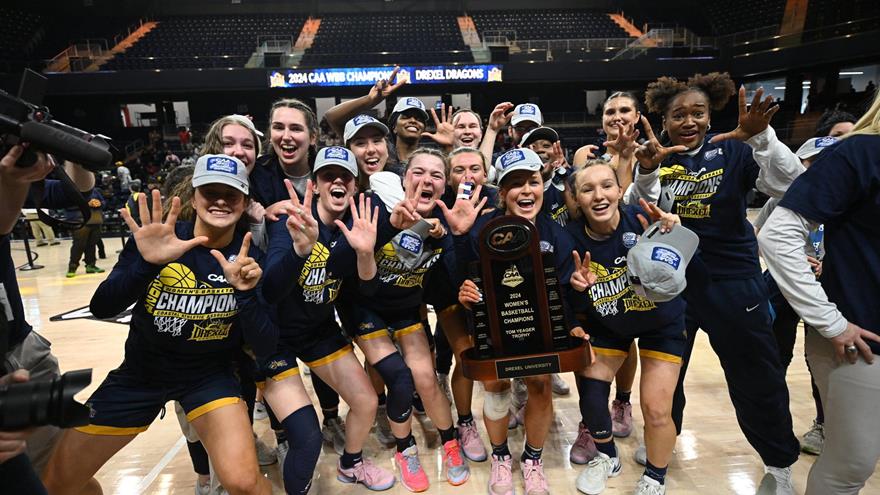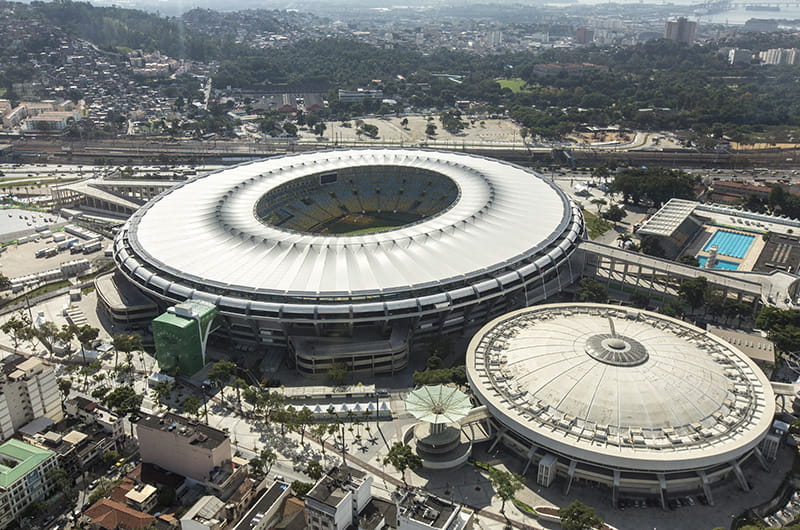Is the World Cup a Blessing or a Curse? A Q&A With Eric Zillmer


As the 2014 World Cup approaches, all eyes are on Brazil. The country has been plagued by claims that it is unprepared to host the massive sporting event and protests over the billions of dollars spent on construction costs.
Meanwhile, before this year’s event has even begun, another World Cup set for eight years from now is already under scrutiny. FIFA, the international governing body that organizes the World Cup, is investigating allegations of bribery and corruption that may have been involved in the decision to award the 2022 event to Qatar.
DrexelNow checked in with Eric Zillmer, PsyD, a professor of psychology in the College of Arts and Sciences and director of athletics, for his thoughts and predictions on the global soccer competition.
Is Brazil ready to host the World Cup?
Brazil is the seventh-largest economy in the world, almost similar in size to the United Kingdom. Unlike the United Kingdom, which flawlessly hosted the 2012 Summer Olympics, Brazil has been dogged by issues of safety, unemployment and labor unrest. The host nation is scrambling to make sure stadia, airports and accommodations are ready for the nearly half-million people expected to attend.
Play will be held in 12 cities around the large South American nation. Although Brazil won the bid to host in 2007, we recently learned that the roof of the stadium in São Paolo would not be finished for the opening game between Brazil and Croatia on June 12. There are also questions about the readiness of the airports in some of the more remote locations of Brazil, with reports that temporary tents will accommodate extra passengers. And then there are issues of tourism safety as well as reports of labor demonstrations against what is perceived to be too high a cost.
Is winning a bid to host the World Cup a blessing or a curse?
The final verdict of the World Cup will be analyzed five years after the last goal has been scored. Will the Cup bring lasting infrastructure improvements to Brazil, or will some of the stadiums become white elephants, reminiscent of leftover empty wine bottles after a party? Results have been mixed in the past. For example, did South Africa benefit in the long run from the World Cup? How about Poland or Korea? The final analysis is probably best measured in unemployment statistics and currency exchange rates, which will serve as clues as to whether the rest of the world is more likely to do business with Brazil as a function of having hosted the World Cup.
What’s going to happen on the field?
Spain is the defending champion and Brazil the most decorated champion with five titles. Given that Brazil is one of the best teams in the world, if not the best, and that they have the home-court advantage, can anyone besides Brazil really win the Cup?
The most important question of the World Cup is: Will Brazil “crack” under the pressure of the host country’s dreams and ambitions to be a world-class country on and off the field? My guess is that they will and that it will open the Cup for the Germans or Argentina. Remember, this is soccer and once pool play is completed, the knockout round will surely lead to some surprises.
What do recent reports of bribery and inhumane working conditions related to the 2022 Qatar World Cup say about FIFA and the World Cup?
Sport represents a slice of life, a seemingly transparent and accessible part of our society. All highly organized cultures — ancient Greece, the Roman Empire, the Mayans — have celebrated sport, and this is true of our country as well. Soccer has such simple rules that it is easy to watch. Because soccer is so accessible, many social issues get processed through this medium, just like the culture of music has promoted peace and reform. Issues of gender equity, racism, cheating and so on have been publicly scrutinized through sports.
The World Cup represents the largest stage of any sporting event. With so much financial and political leverage at stake, corruption is sure to follow. Add one of the most stubborn leaders of any nonprofit organization, FIFA President Sepp Blatter, and the present state of affairs is that there is very little transparency in terms of how World Cup bids get awarded. The selections of Qatar and Russia for future World Cups have been questioned in terms of how votes were recruited — especially for Qatar, which features summers so hot that soccer cannot be played. Many critics believe there must have been foul play involved. As a result, few experts have trust in the process, and many suggest a complete “makeover.”
But other organizations, such as the International Olympic Committee, are burdened by similar problems. By now it should come as no surprise that it is part of the human experience that individuals are open to bribery and corruption when the stakes are high. It is an absurd irony of sports to celebrate a level playing field on the field, but not away from it.
In This Article
Drexel News is produced by
University Marketing and Communications.